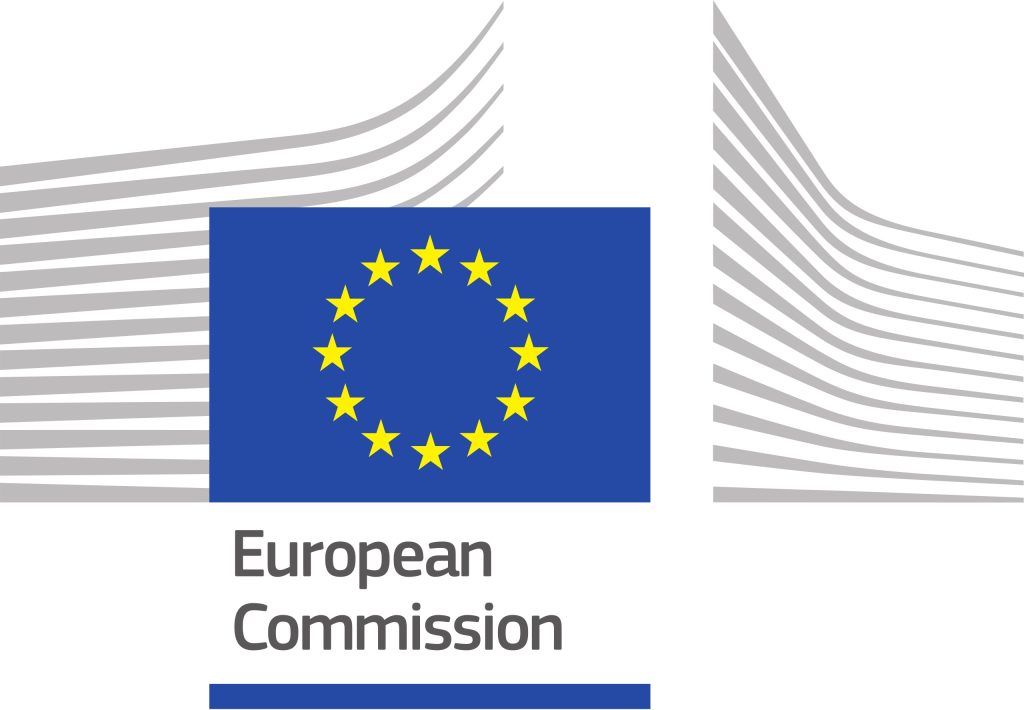
Scaling-up Balance of Plant components for efficient high power heavy duty applications
Expected Outcome:
Development of highly durable 250-500 kW PEMFC stacks for heavy duty applications (aviation, maritime, on-/off-road transport) is ongoing. However, today balance of plant (BoP) components are developed and industrialised for 100-200 kW systems. PEMFC stacks need BoP components for the system to operate under changing environmental conditions, to safely start-/stop and recondition the fuel cells and to comply with the requirements for variable power output. Such BoP need to be developed and validated for the new generation of high power 250 to 500 kW PEMFC systems suitable for various transport related end use applications.
Project results are expected to contribute to all of the following expected outcomes:
- Consolidate European industry's leadership and competitiveness in development and implementation of hydrogen powered fuel cell systems in line with Fit for 55 targets;
- Contribute to establishing a complete European based supply chain for fuel cell systems, including BoP components, thereby ensuring value creation and creation of jobs;
- Advancements and validations in the following areas, in order to create a technology demonstrator (TRL7) within aviation, maritime or heavy-duty road transport applications, scheduled from 2027 onwards:
- Lighter weight BoP components compared to off-the-shelf components;
- More efficient BoP operation in design and off-design conditions compared to using off-the-shelf components;
- Operations under application relevant changing environmental conditions (ambient pressure, -humidity and -temperature);
- Robust fuel cell stack start-/stop- and reconditioning procedures using cryogenic stored hydrogen;
- Built in functionalities to enable safe and robust power system start and shutdown at sub-zero ambient conditions.
- To consider tailored operational strategies relevant to the up-scaled BoP components, such as those developed in topic HORIZON-JTI-CLEANH2-2024-03-01: Balance of plant components, architectures and operation strategies for improved PEMFC system efficiency and lifetime, topic dedicated to combining optimized strategies with redesigned architectures and selected component particularly for improved performance of modules for heavy-duty road applications
Project results are expected to contribute to the following objectives and KPIs of the Clean Hydrogen JU SRIA:
- Simplification of the FC system design (in particular for heavy-duty applications) in order to reduce the number of parts and foster the emergence of standard components, interfaces and system configurations hence improving their manufacturability;
- Achieving performance KPIs related to system power or system efficiency specific targets as appropriate for the application targeted by the proposal:
- FC power rating of 6 MW for ships.
- FC system gravimetric index of 1.5 kW/kg, or > 2kW/kg thanks to the development of light weight BoP components, for aircraft.
- FC system electric efficiency > 50% for all applications.
- Achieving higher durability and maintainability with more than 25,000 hours of operation time for both HD vehicles and aircraft or 60,000 hours for ships and possibilities to recondition the fuel cell system with specialised BoP components to ensure this goal.
- Achieving BoP components which can be coupled to HD fuel cell stacks or to multiple stacks;
- Durability of up scaled BoP components meet the requirements of application relevant load cycles.
- Contributing to reducing cost for reaching targets expected in 2030 in line with SRIA. Impact of manufacturing aspects shall be considered for scaled-up BoP components.
Scope:
This topic aims at development and validation of the new generation of high-power BoP components sized for ≥250 kW heavy duty fuel cell systems containing one single fuel cell stack or multiples of stacks. The developed BoP components should be compatible with upscaling to multi-MW propulsion systems. The following components and sub-system are of high relevance:
- Air humidifiers are considered a component that contributes to improving the gravimetric power index, if the component becomes more integrated and more light weight.
- Anode gas recirculation components enable high utilisation of hydrogen and are therefore to be developed and optimised for the aforementioned requirements. The possibilities of fuel cell reconditioning measures are to be considered.
- To reliably operate fuel cell drivetrains gas sensors need to measure mass flow, humidity, temperature, pressure and gas compositions accurately. These sensors need to be operational under changing environmental conditions and need to be robust against gas impurities and water phase.
Proposals are expected to build on demonstration-level high power installations or pre-study designs by addressing the identified knowledge gaps and scaling up and improving key BoP components suitable for high power HD applications.
Increasing the fuel cell system gravimetric power index above 2.5 kW/kg requires the development of light weight and compact BoP components as well as novel and innovative system architectures. In particular, proposals should address the following:
- Re-design of BoP component(s) and enhanced system architectures for a minimum of 250 kW PEM fuel cell platform compatible with reaching the multi-MW scale and with end-user requirements (system power output, voltage level, weight, volume …);
- Investigations to simplify architectures by e.g., removing components such as gas sensors, the anode gas recirculation machine, water separators, the humidifier bypass and/or the humidifier itself;
- Analyses of the trade-offs between system efficiency, operational bandwidth and system complexity for waste heat recovery from fuel cell system components e.g., stack(s), power electronics and motors;
- Design and validation of the electric power supply architecture for BoP components used for heavy duty fuel cell systems containing one single fuel cell stack or multiples of stacks;
- Design and validation of the thermal integration of the waste heat management of the BoP components into the overall thermal system of the heavy-duty fuel cell system;
- Evaluation of auxiliary functions performed by the up-scaled BoP components e.g., for cold start and fuel cell stack reconditioning operations;
- Assessments to ensure a scalable, modular and multi modal product family that allows the usage in a wide range of HD applications (aviation, maritime, rail and road transport);
- Development, testing and validation of selected, up-scaled BoP components (PEMFC stack may be emulated);
- Implementation and testing of control strategies to validate the improved system performance, efficiency and reliability.
Original equipment manufacturers (OEMs), end users and research institutes should indicate how product relevant R&D activities lead to improved components and achieve the required system level functionality.
HORIZON-JTI-CLEANH2-2024-03-01 and HORIZON-JTI-CLEANH2-2024-03-02 topics are highly complementary; liaison between successful proposals in these two topics is expected to ensure complementarity, leverage synergies and avoid duplication of efforts. Applicants should demonstrate how this will be achieved (e.g. by sharing members of the respective advisory boards, by organizing regular exchanges).
Proposals are encouraged to explore synergies with the Zero Emission Waterborne Transport (ZEWT) Partnership and 2ZERO Partnership as the outputs of the projects supported under this topic have the potential to be of direct interest to companies in the road and port-maritime sector (e.g. trucks, pilot boats, cargo port handling equipment, etc).
Proposals should demonstrate how they go beyond the ambition of FASTERH2, BRAVA, SMR-ACAP and other relevant European projects and be complementary to them.
For additional elements applicable to all topics please refer to section 2.2.3.2.
Activities are expected to start at TRL 3 and achieve TRL 5 by the end of the project - see General Annex B.
The JU estimates that an EU contribution of maximum EUR 4.00 million would allow these outcomes to be addressed appropriately.
The conditions related to this topic are provided in the chapter 2.2.3.2 of the Clean Hydrogen JU 2024 Annual Work Plan and in the General Annexes to the Horizon Europe Work Programme 2023–2024 which apply mutatis mutandis.
Specific Topic Conditions:
Activities are expected to start at TRL 3 and achieve TRL 5 by the end of the project - See General Annex B.
General Information
Development of highly durable 250-500 kW PEMFC stacks for heavy duty applications (aviation, maritime, on-/off-road transport) is ongoing. However, today balance of plant (BoP) components are developed and industrialised for 100-200 kW systems. PEMFC stacks need BoP components for the system to operate under changing environmental conditions, to safely start-/stop and recondition the fuel cells and to comply with the requirements for variable power output. Such BoP need to be developed and validated for the new generation of high power 250 to 500 kW PEMFC systems suitable for various transport related end use applications.
Project results are expected to contribute to all of the following expected outcomes:
- Consolidate European industry's leadership and competitiveness in development and implementation of hydrogen powered fuel cell systems in line with Fit for 55 targets;
- Contribute to establishing a complete European based supply chain for fuel cell systems, including BoP components, thereby ensuring value creation and creation of jobs;
- Advancements and validations in the following areas, in order to create a technology demonstrator (TRL7) within aviation, maritime or heavy-duty road transport applications, scheduled from 2027 onwards:
- Lighter weight BoP components compared to off-the-shelf components;
- More efficient BoP operation in design and off-design conditions compared to using off-the-shelf components;
- Operations under application relevant changing environmental conditions (ambient pressure, -humidity and -temperature);
- Robust fuel cell stack start-/stop- and reconditioning procedures using cryogenic stored hydrogen;
- Built in functionalities to enable safe and robust power system start and shutdown at sub-zero ambient conditions.
- To consider tailored operational strategies relevant to the up-scaled BoP components, such as those developed in topic HORIZON-JTI-CLEANH2-2024-03-01: Balance of plant components, architectures and operation strategies for improved PEMFC system efficiency and lifetime, topic dedicated to combining optimized strategies with redesigned architectures and selected component particularly for improved performance of modules for heavy-duty road applications






Scaling-up Balance of Plant components for efficient high power heavy duty applications 0 reviews
Login to Write Your ReviewThere are no reviews yet.